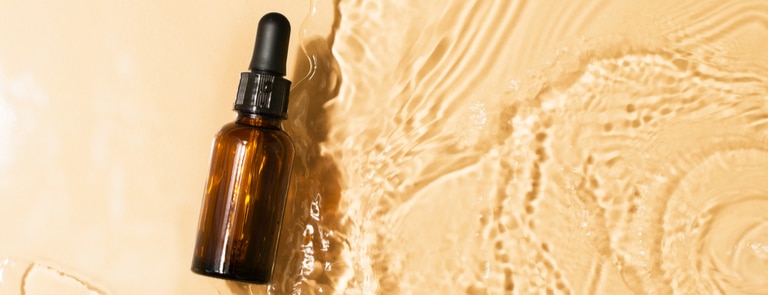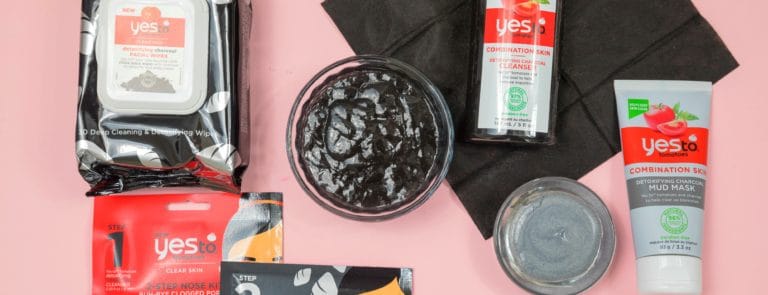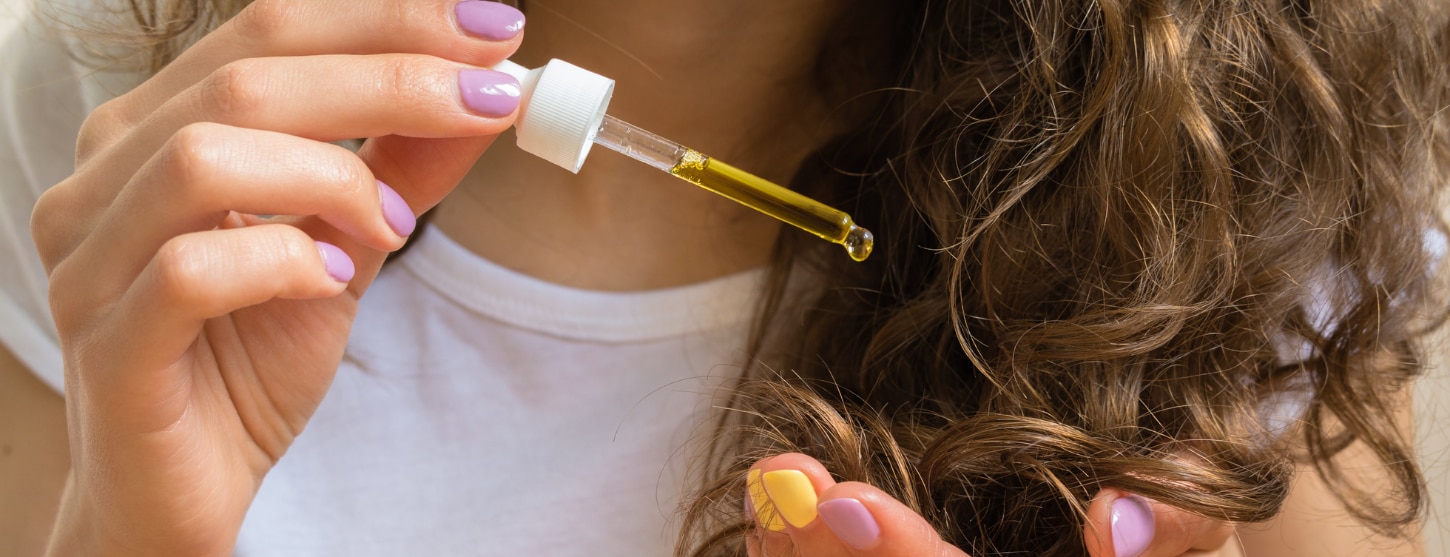15% off £25 or 20% off £35
Code:BASKET
Niacinamide skincare explained: benefits, how to use it, and side effects

Meet the ingredient that is putting the ‘B’ in beauty. From brightening to balancing, find out why niacinamide (a vitamin B3 derivative) is a skincare staple
Summary
1What is niacinamide?
Niacinamide is a form of vitamin B3 that’s become a skincare essential. Known for its ability to strengthen the skin barrier and lock in hydration…
2Potential niacinamide benefits
From calming redness to balancing oil and brightening uneven tone, niacinamide is thought to be one of skincare’s most versatile ingredients…
3Different forms of niacinamide
Whether you prefer serums, moisturisers, cleansers or toners, there’s a niacinamide option to suit your routine…
This vitamin has carved out a well-earned spot in beauty routines everywhere, from calming redness to smoothing fine lines.
So, what’s all the fuss about, and how can Niacinamide work for your skin? Here’s the scoop on this skincare superstar and why it’s worth a closer look.
So, what’s all the fuss about, and how can Niacinamide work for your skin? Here’s the scoop on this skincare superstar and why it’s worth a closer look.
What is niacinamide?
Niacinamide, is a type of vitamin B3 that supports overall skin health (as well as other aspects of your health).1,2
Unlike other skincare ingredients that help tackle specific skin issues, niacinamide takes a more holistic approach by strengthening the skin’s barrier and locking in moisture.3
You’ll find it in various products, including moisturisers and dietary supplements.4
Why niacinamide deserves a spot in your routine
Niacinamide has gained recognition as a truly versatile ingredient, offering several potential benefits.4 Here’s a closer look at how niacinamide may support your skin and why it deserves a spot in your routine.
Niacinamide could help strengthen the skin’s protective barrier, reducing moisture loss and shielding it from irritants.3 This could make it a hero ingredient for sensitive or compromised skin.
Research indicates that a healthy skin barrier helps lock in moisture, leaving your skin looking plump and refreshed.6
Niacinamide’s anti-inflammatory properties can help soothe irritation, making it a gentle option for people with conditions such as rosacea or acne.2,7 If you’ve ever experienced redness after a long day in the sun or due to environmental pollutants, niacinamide may offer a calming touch for your skin.8,9
By reducing excess sebum (oil) production, niacinamide may make pores appear smaller, giving your skin a smoother, more refined texture.2,4 While it won’t physically shrink pores, it can help reduce the oil and debris that make them more noticeable.2
Niacinamide inhibits melanin transfer, which may help reduce the appearance of dark spots and hyperpigmentation over time, revealing a brighter complexion.2 Regular niacinamide use may give you that coveted ‘glow-from-within’ look.
This powerhouse vitamin is thought to improve skin elasticity and potentially reduce the appearance of fine lines and wrinkles - though more research is needed to understand how this may occur.4
In clinical studies, niacinamide has been shown to soften crow’s feet and other common signs of ageing.10,11 However, these studies do contain a small number of participants, so further research is needed to confirm the effects.
For those with oily or combination skin, niacinamide can be a game-changer. By regulating sebum levels, niacinamide may help reduce shine and prevent clogged pores, making it suitable for acne-prone skin.2
Niacinamide offers antioxidant protection, helping to shield your skin from oxidative stress caused by free radicals.2,4 This can play a role in combating premature ageing and supporting skin health.4
Different forms of niacinamide
Niacinamide comes in various forms, so there’s something for everyone, no matter your skincare style:4
- cleansers: new to niacinamide? Cleansers are a gentle way to introduce it to your routine. Select sulphate-free options that cleanse without leaving your skin feeling tight or stripped

- toners: toners infused with niacinamide offer a refreshing way to balance your skin while delivering a boost of hydration. Use them after cleansing to prep your skin for the rest of your routine
- serums: these lightweight and fast-absorbing formulations are perfect for targeted treatment. Apply them after cleansing and toning, but before moisturising, to let all that niacinamide goodness sink right in
- moisturisers: double up on hydration while giving your skin the barrier support it craves. These multitaskers can keep your skin nourished all day long
- supplements: niacinamide isn’t just for your face. Taken orally, it may also support overall skin health. If you’re considering this route, chat with a healthcare professional to see if it’s right for you
Whether you’re team serum, moisturiser or cleanser, there’s a niacinamide option ready to fit seamlessly into your routine.
Niacinamide side effects
Niacinamide is loved for a reason – it’s gentle, nourishing and offers a range of potential benefits for a spectrum of skin types.
But, as with any product, some people may experience side effects. You might notice mild itching, redness or a slight burning sensation as your skin adjusts, but these effects are typically short-lived.13 If irritation occurs, rinsing off the product may help alleviate discomfort.
Before introducing a new niacinamide product into your routine, it’s a good idea to patch-test it on a small area, like your inner arm or behind your ear. This simple step can help you avoid any unexpected reactions.
Oral niacinamide supplements are generally well-tolerated when taken in recommended doses. Occasionally, it may cause mild side effects, such as:13
It’s best to start with lower concentrations of niacinamide to keep things easy on your skin, especially if it's sensitive.14 One study found that higher concentrations of niacinamide typically don’t cause stinging or discomfort, possibly making it a gentle yet effective option.13 However, these results are limited and you should always follow your doctor’s advice and manufacturer’s instructions.
How to use niacinamide
Getting started with niacinamide is a breeze. Here’s how to make it work its charm in your skincare routine:
- cleanse like a pro: kick things off with a gentle cleanser to sweep away dirt, oil and impurities
- apply niacinamide: when using a serum or moisturiser, apply your niacinamide product after cleansing but before heavier creams or oils. If you’re using a niacinamide serum, give it a moment to sink in before layering other products
- follow with sunscreen: during the day, finish up with a broad-spectrum sunscreen (SPF 30 or higher). Niacinamide might bolster your skin’s defences, but it doesn’t replace UV protection14
Yes, niacinamide is gentle enough for daily use and can even be applied twice a day – morning and night – for optimal results.4
Pair it with other complementary ingredients, such as hyaluronic acid for hydration or ceramides for skin barrier repair.13,14
Good things take time, and niacinamide is no exception. While you might notice a hydration boost immediately, visible changes – such as reduced redness or smaller pores – usually take 2–12 weeks of consistent use.2,4
Everyone’s skin is unique, so your results might vary.
Common myths about niacinamide
Despite its growing popularity, there are still some misconceptions about niacinamide. Let's bust the myths and set the record straight:

- niacinamide can’t be layered with vitamin C: There are no reported interactions between these products - this myth comes from outdated studies done at extremely high temperatures
- it’s only for oily skin: niacinamide may benefit all skin types, from dry to sensitive2
- high concentrations are better: more isn’t always better. Start with a lower percentage to avoid irritation and achieve steady, lasting results15
The final say
Niacinamide is a skincare favourite, potentially helping to calm breakouts, smooth fine lines and boost your skin’s natural radiance. It’s versatile enough to fit into any skincare routine, whether you’re just starting out or you’re a seasoned pro.
Begin with a small amount, use it regularly, and over time, you may notice your skin looking brighter, feeling smoother and becoming more resilient. Your glow-up is just around the corner!
Want to know more about B vitamins and how you can get more of them? Head over to our article ‘What’s the best vitamin B supplement?’ for all you need to know about these important vitamins.
Disclaimer - This article provides informational advice and is not a substitute for medical care. Curated by experts for accuracy, we take great care to ensure the information is up-to-date and relevant. However, you should always consult your GP or healthcare professional before using supplements or alternative products, particularly if you have medical conditions or are under supervision.
1. Peechakara BV, Mohit G. Vitamin B3. Treasure Island (FL): StatPearls Publishing; 2024. Available from: https://www.ncbi.nlm.nih.gov/books/NBK526107/
2. Marques C, et al. Mechanistic insights into the multiple functions of niacinamide: Therapeutic implications and cosmeceutical applications in functional skincare products. Antioxidants. 2024;13(4):425. https://doi.org/10.3390/antiox13040425
3. Gehring W. Nicotinic acid/niacinamide and the skin. J Cosmet Dermatol. 2004;3(2):88–93. https://doi.org/10.1111/j.1473-2130.2004.00115.x
4. Boo YC. Mechanistic basis and clinical evidence for the applications of nicotinamide (niacinamide) to control skin aging and pigmentation. Antioxidants. 2021;10(8):1315. https://doi.org/10.3390/antiox10081315
5. Zhen AX, et al. Niacinamide protects skin cells from oxidative stress induced by particulate matter. Biomol Ther. 2019;27(6):562–9. https://doi.org/10.4062/biomolther.2019.061
6. Mijaljica D, et al. The heterogeneity and complexity of skin surface lipids in human skin health and disease. Prog Lipid Res. 2024;93:101264. https://doi.org/10.1016/j.plipres.2023.101264
7. Algarin YA, et al. The role of vitamins and nutrients in rosacea. Arch Dermatol Res. 2024;316(5):142. https://doi.org/10.1007/s00403-024-02895-4
8. Snaidr VA, et al. Nicotinamide for photoprotection and skin cancer chemoprevention: A review of efficacy and safety. Exp Dermatol. 2019;28(1):15–22. https://doi.org/10.1111/exd.13819
9. Bierman JC, et al. Niacinamide mitigates SASP‐related inflammation induced by environmental stressors in human epidermal keratinocytes and skin. Int J Cosmet Sci. 2020;42(5):501–11. https://doi.org/10.1111/ics.12651
10. Majewski GP, et al. Niacinamide + “Linefade” ameliorate crow’s feet wrinkles and facial sagging in a split‐face image analysis study. J Cosmet Dermatol. 2022;22(2):708–9. https://doi.org/10.1111/jocd.15459
11. Bissett DL, et al. Niacinamide: A B vitamin that improves aging facial skin appearance. Dermatol Surg. 2006;31:860–6. https://doi.org/10.1111/j.1524-4725.2005.31732
12. MedlinePlus. Niacinamide [Internet]. [cited 2024 Dec 18]. Available from: https://medlineplus.gov/druginfo/natural/1534.html
13. Cosmetic Ingredient Review Expert Panel. Final report of the safety assessment of niacinamide and niacin. Int J Toxicol. 2005;24(5):1–31. https://doi.org/10.1080/10915810500434183
14. Sander M, et al. The efficacy and safety of sunscreen use for the prevention of skin cancer. CMAJ. 2020;192(50):E1802–8. https://doi.org/10.1503/cmaj.201085
15. Juncan AM, et al. Advantages of hyaluronic acid and its combination with other bioactive ingredients in cosmeceuticals. Molecules. 2021;26(15):4429. https://doi.org/10.3390/molecules26154429
16. Schild J, et al. The role of ceramides in skin barrier function and the importance of their correct formulation for skincare applications. Int J Cosmet Sci. 2024;46(4):526–43. https://doi.org/10.1111/ics.12972












